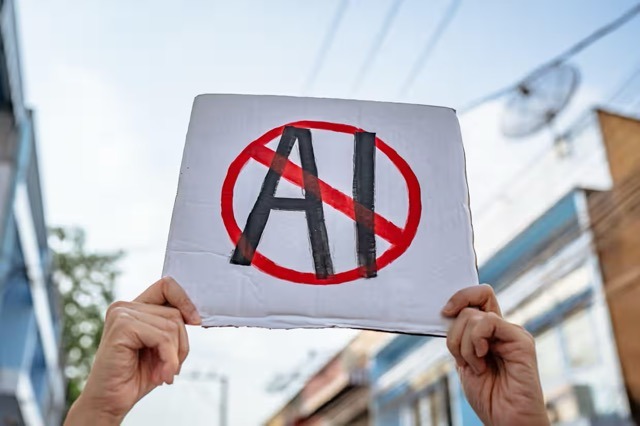AI Industry Insiders Blow the Whistle on Safety Concerns
Current and former employees at leading AI companies raise red flags about a lack of oversight and urge for whistleblower protections.

In a bold move, a group of individuals with past and present experience at prominent artificial intelligence (AI) firms issued a public statement on Tuesday. The open letter criticizes the industry’s shortcomings in safety precautions and advocates for stronger safeguards for those who speak up about potential risks.
This letter, titled “A Right to Warn About Artificial Intelligence,” is a rare instance where employees from within the typically secretive AI field are openly voicing concerns about the dangers of the technology. The letter garnered signatures from eleven current or former staff members at OpenAI, alongside two from Google DeepMind (including one who previously worked at Anthropic).
The letter highlights the significant amount of confidential information held by AI companies concerning their systems’ capabilities and limitations, along with the effectiveness of implemented safeguards and the potential severity of various risks. However, it expresses a lack of confidence in these companies’ willingness to share this information transparently, stating, “they currently have only weak obligations to share some of this information with governments, and none with civil society.”
OpenAI responded with a statement defending its practices. They emphasized existing channels for reporting issues, such as a tipline, and their commitment to only releasing new technology with appropriate safety measures. Google has yet to comment publicly.
While anxieties surrounding the potential downsides of AI have been around for a long time, the recent surge in AI development has intensified these concerns, leaving regulatory bodies struggling to keep pace. While AI companies have made public pronouncements regarding safety during development, researchers and employees have expressed worries about insufficient oversight. They fear that AI tools could exacerbate existing social problems or even create entirely new ones.
The letter, first reported by the New York Times, calls for increased protections for employees working at advanced AI companies who choose to raise safety concerns. It proposes a commitment to four key principles centered on transparency and accountability. These principles include a ban on companies forcing employees to sign non-disparagement agreements that silence discussions about AI safety risks, and the establishment of a system for anonymous reporting of concerns directly to board members.
The letter emphasizes the crucial role employees play in holding these corporations accountable, stating, “So long as there is no effective government oversight of these corporations, current and former employees are among the few people who can hold them accountable to the public.” However, it criticizes the widespread use of broad confidentiality agreements, which effectively prevent employees from voicing their concerns “except to the very companies that may be failing to address these issues.”
This open letter follows recent reports highlighting companies like OpenAI potentially using aggressive tactics to silence employee discussions. Just last week, Vox revealed that OpenAI required departing staff to sign exceptionally restrictive non-disparagement and non-disclosure agreements, risking forfeiture of vested equity for non-compliance. OpenAI CEO Sam Altman apologized in response to the report, promising changes to their off-boarding procedures.
The timing of the letter coincides with the departure of two key figures at OpenAI – co-founder Ilya Sutskever and safety researcher Jan Leike – who both resigned last month. Following his resignation, Leike expressed his belief that OpenAI had prioritized “shiny products” over safety measures. The open letter echoes Leike’s concerns, highlighting the lack of transparency surrounding the companies’ operations.


